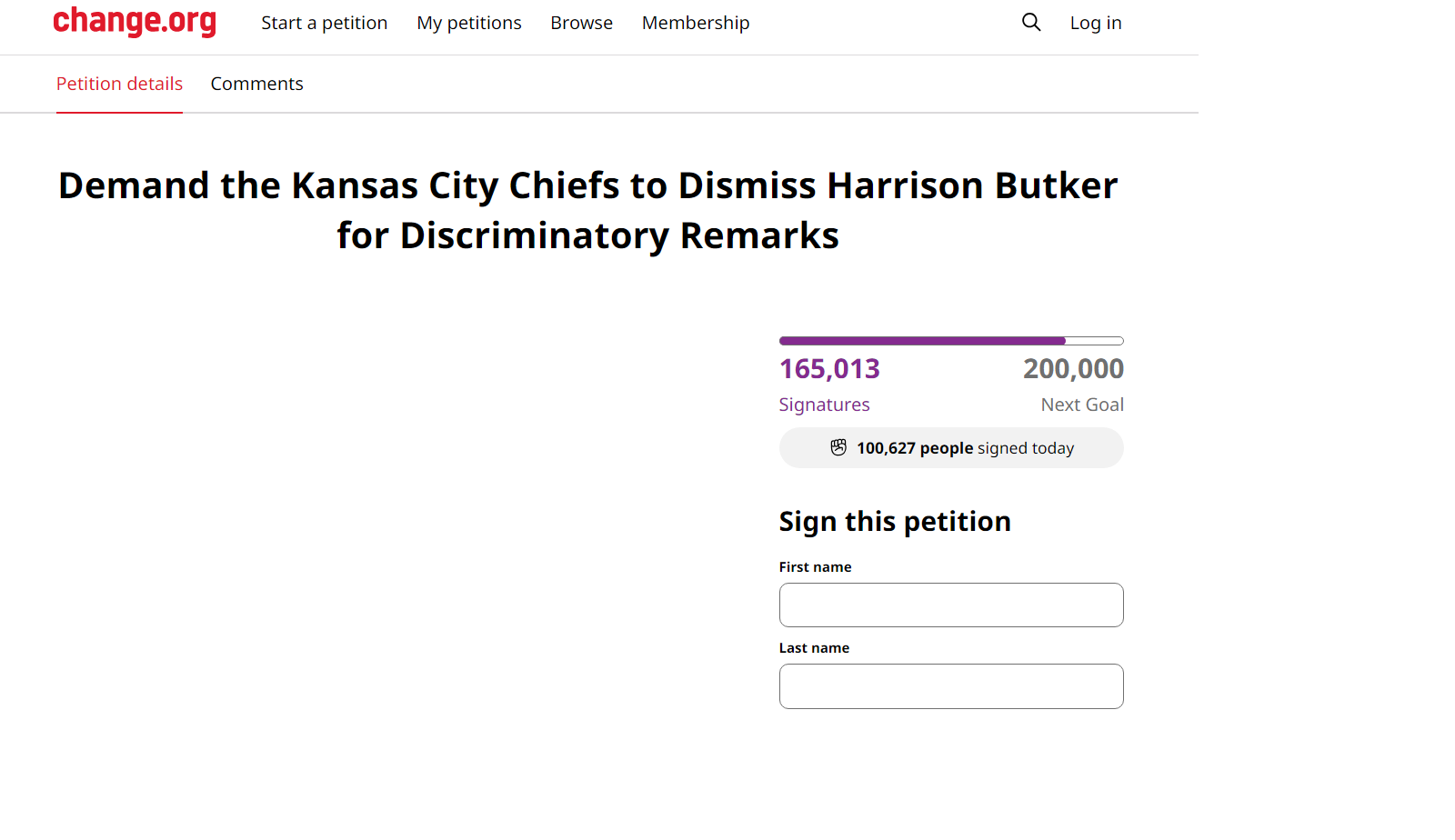In the world of modern politics and social movements, the term "Harrison Bergeron petition" has emerged as a powerful rallying cry for equality and justice. The idea behind the petition draws inspiration from Kurt Vonnegut's iconic short story, "Harrison Bergeron," which explores themes of forced equality and societal constraints. This petition seeks to address pressing issues in contemporary society by advocating for fairness and equity for all individuals.
As the global conversation around inequality continues to grow, the Harrison Bergeron petition represents a grassroots effort to challenge systemic injustices and promote inclusivity. This movement is not just about theoretical ideals but also practical steps toward creating a more equitable world. By understanding the roots of this initiative and its implications, we can better grasp the significance of this call to action.
This article delves into the origins, purpose, and impact of the Harrison Bergeron petition, offering a comprehensive overview of its relevance in today's socio-political landscape. We will explore how this movement aligns with broader efforts to dismantle barriers that prevent true equality from being realized.
Read also:Brynn Woods Porn A Comprehensive Exploration Of The Career Facts And Impact
Table of Contents
- Biography of Harrison Bergeron
- Origins of the Harrison Bergeron Petition
- Key Issues Addressed by the Petition
- Goals of the Harrison Bergeron Petition
- Public Support and Participation
- Impact on Society
- Legal Considerations and Challenges
- Data and Statistics Supporting the Movement
- Criticisms and Counterarguments
- Future Direction of the Movement
Biography of Harrison Bergeron
Data and Facts about Harrison Bergeron
Harrison Bergeron is a fictional character from Kurt Vonnegut's 1961 short story, "Harrison Bergeron." While the character himself is not real, his legacy has inspired real-world movements advocating for social justice and equality. Below is a summary of his "biographical" details:
| Name | Harrison Bergeron |
|---|---|
| Birth Year | 2001 (in the story's timeline) |
| Family | Son of George and Hazel Bergeron |
| Key Traits | Exceptional intelligence, strength, and beauty |
| Role in Society | Symbol of resistance against oppressive equality measures |
Harrison's story serves as a cautionary tale about the dangers of forcing conformity at the expense of individuality. His legacy inspires modern-day petitions and movements that seek to strike a balance between equality and personal freedom.
Origins of the Harrison Bergeron Petition
Inspiration from Literature
The Harrison Bergeron petition draws inspiration directly from Kurt Vonnegut's dystopian vision in "Harrison Bergeron." In the story, society enforces equality by handicapping individuals who possess above-average abilities. This concept has sparked debates about the true meaning of equality and whether fairness should come at the cost of personal freedoms.
Today's petition movement uses this literary foundation to advocate for policies that empower individuals while addressing systemic inequalities. By referencing Vonnegut's work, the petition highlights the importance of balancing equality with respect for individual differences.
Key Issues Addressed by the Petition
The Harrison Bergeron petition focuses on several critical issues affecting modern society:
- Social inequality and discrimination
- Access to education and economic opportunities
- Protection of individual rights and freedoms
- Addressing systemic barriers to equality
Each of these issues is explored in detail throughout the petition, providing a comprehensive framework for action.
Read also:Trisha Paytas Leak The Truth Behind The Controversy
Goals of the Harrison Bergeron Petition
Short-Term and Long-Term Objectives
The primary goals of the Harrison Bergeron petition include:
- Raising awareness about the importance of true equality
- Encouraging policymakers to implement equitable policies
- Promoting inclusivity and diversity in all aspects of society
Long-term objectives involve creating sustainable systems that ensure fairness and justice for future generations. These goals are supported by research and data from reputable sources, including the United Nations and various human rights organizations.
Public Support and Participation
The Harrison Bergeron petition has garnered significant public support, with thousands of individuals signing and endorsing the initiative. This widespread participation reflects growing awareness of the need for systemic change in addressing inequality.
To further engage the public, the petition organizers have launched campaigns on social media platforms, encouraging people to share their stories and experiences related to inequality. This grassroots approach has helped amplify the movement's message and attract attention from policymakers and influencers.
Impact on Society
Positive Outcomes and Challenges
The Harrison Bergeron petition has already begun to make a positive impact on society by sparking conversations about equality and justice. It has inspired similar movements around the world, encouraging people to take action in their communities.
However, challenges remain, including resistance from those who oppose changes to the status quo. Despite these obstacles, the petition continues to gain momentum, driven by the dedication of its supporters and the urgency of its cause.
Legal Considerations and Challenges
Implementing the goals of the Harrison Bergeron petition involves navigating complex legal landscapes. This includes addressing constitutional rights, ensuring compliance with international human rights laws, and working within existing legislative frameworks.
Legal experts and advocacy groups are collaborating to develop strategies that align with both national and global legal standards. These efforts aim to create policies that are both effective and sustainable in promoting equality and justice.
Data and Statistics Supporting the Movement
Several studies and reports highlight the need for the changes advocated by the Harrison Bergeron petition. According to data from the World Economic Forum, global inequality remains a significant barrier to progress, with disparities in wealth, education, and opportunities persisting across regions.
Additionally, research conducted by organizations such as Amnesty International and Oxfam underscores the urgency of addressing systemic inequalities. These findings provide a strong foundation for the petition's arguments and reinforce the importance of taking action.
Criticisms and Counterarguments
While the Harrison Bergeron petition has gained widespread support, it has also faced criticism from some quarters. Critics argue that the petition's goals may be overly ambitious or impractical to implement in real-world settings.
Others question whether the petition adequately addresses the complexities of equality and justice. In response, proponents of the movement emphasize the importance of incremental progress and the need for ongoing dialogue and collaboration.
Future Direction of the Movement
Expanding Reach and Influence
Looking ahead, the Harrison Bergeron petition aims to expand its reach and influence by partnering with organizations and individuals committed to equality and justice. This includes working with governments, NGOs, and community groups to implement policies that align with the petition's goals.
Furthermore, the movement plans to leverage technology and digital platforms to increase engagement and participation. By doing so, it hopes to create a global network of supporters dedicated to advancing the cause of equality for all.
Kesimpulan
The Harrison Bergeron petition represents a powerful movement for equality and justice, inspired by the timeless themes of Kurt Vonnegut's classic story. Through its focus on key issues, clear goals, and widespread public support, the petition has already begun to make a meaningful impact on society.
We invite you to join this important movement by signing the petition, sharing its message with others, and staying informed about developments in the fight for equality. Together, we can create a more just and equitable world for everyone.


